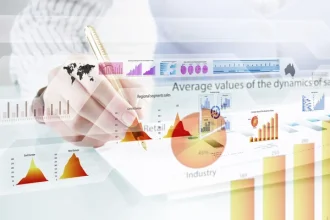When Stress Steers The Wheel
We have all been there. You are having a rough day, everything feels out of control, and somehow a shopping cart fills up with things you did not plan to buy. This reaction is not just about lack of discipline. It has a lot to do with how stress affects your brain and decision-making. Stress pulls energy away from the logical parts of your brain and puts it toward your fight-or-flight response. In the moment, buying something can feel like a quick fix to ease that stress. Even something like applying for a free personal loan might seem like a good idea when you are under pressure and looking for any relief. But these decisions can have long-term consequences that do not always match your real financial goals.

How The Brain Changes Under Stress
When you are stressed, your brain shifts gears. The prefrontal cortex, which helps you think clearly and weigh long-term consequences, becomes less active. Instead, the amygdala kicks into high gear, pushing you toward quick reactions and instant gratification. This makes it harder to pause and think things through. That is why you might buy something expensive on impulse, thinking it will make you feel better, only to regret it later. Stress is not just an emotional state. It changes how your brain works in real time, making smart financial choices more difficult.
Why Willpower Gets Weaker
Willpower is like a battery. When you are rested and calm, your self-control is strong. But stress drains that battery fast. When you are overwhelmed, your willpower gets depleted, and resisting temptations becomes much harder. This is why stress eating, stress shopping, and even stress borrowing happen so often. You are trying to soothe yourself, even if just for a moment. Unfortunately, spending money impulsively under stress can add more pressure later, especially when bills start piling up or debt increases.
Impulse Spending Feels Good—For A Moment
Spending money when stressed gives a short burst of pleasure. It feels like you are doing something to take control of the situation. Buying a new outfit, ordering takeout, or even applying for a free personal loan can create a temporary high. But that relief usually fades quickly, and what is left behind is often guilt or regret. This cycle of emotional spending can become a habit if stress is a regular part of your life. Breaking that cycle starts with understanding what is really driving the urge to spend.
Stress Makes Long-Term Planning Harder
One of the biggest impacts of stress is how it pulls your attention to the present. When your brain is in survival mode, it is much harder to think about the future. Goals like saving for a house, building an emergency fund, or paying down debt feel far away and less important. This short-term focus can lead to choices that feel good now but hurt your long-term financial health. Stress narrows your vision, making it harder to see the bigger picture.
Creating Habits That Help
You cannot always avoid stress, but you can build habits that make it easier to handle. Start with small routines that support your willpower, like setting a budget before you go shopping or using a waiting period before big purchases. Give yourself time to think before you act. This can help re-engage the rational part of your brain. Practicing mindfulness or journaling when you feel overwhelmed can also help you understand your spending triggers and stay in control. For those who enjoy relaxing hobbies, exploring quartz bangers online can be a fun way to unwind and invest in quality pieces that elevate your experience, turning stress relief into something enjoyable and rewarding.
Have A Plan For Stressful Times
Just like you might prepare for a rainy day with an umbrella, you can prepare for stressful times with a financial plan. This might include having a list of free or low-cost ways to unwind that do not involve spending. You could also set up an automatic savings account that takes money out before you have a chance to spend it. Having a simple plan in place can give you structure when your emotions start to take over. It is also smart to limit access to credit or avoid browsing online stores when you are not feeling your best.
Talk To Someone You Trust
Sometimes the best way to manage stress and avoid impulsive financial choices is to talk it out. Whether it is a friend, family member, or financial advisor, having someone to talk to can help bring perspective. They might help you see options you had not thought of or just give you the support you need to avoid making a rushed decision. If you are considering something like a free personal loan, getting another opinion could help you decide if it is truly helpful or just a stress-driven reaction.
Self-Awareness Leads To Better Choices
The more you understand how stress affects your thinking, the more power you have to make better choices. You do not have to be perfect. Everyone makes mistakes sometimes. But by noticing the patterns and building healthier habits, you can avoid the traps that stress sets in your path. With time and practice, you will find it easier to pause, reflect, and choose actions that support your financial well-being.
Taking Back Control
Stress might be a regular part of life, but it does not have to run the show. By understanding how it impacts your willpower and spending habits, you can start to build strategies that keep you grounded. Whether it is avoiding impulse purchases, saying no to unnecessary loans, or focusing on long-term goals, small changes in how you respond to stress can lead to big improvements in your financial health.

Founder Dinis Guarda
IntelligentHQ Your New Business Network.
IntelligentHQ is a Business network and an expert source for finance, capital markets and intelligence for thousands of global business professionals, startups, and companies.
We exist at the point of intersection between technology, social media, finance and innovation.
IntelligentHQ leverages innovation and scale of social digital technology, analytics, news, and distribution to create an unparalleled, full digital medium and social business networks spectrum.
IntelligentHQ is working hard, to become a trusted, and indispensable source of business news and analytics, within financial services and its associated supply chains and ecosystems











